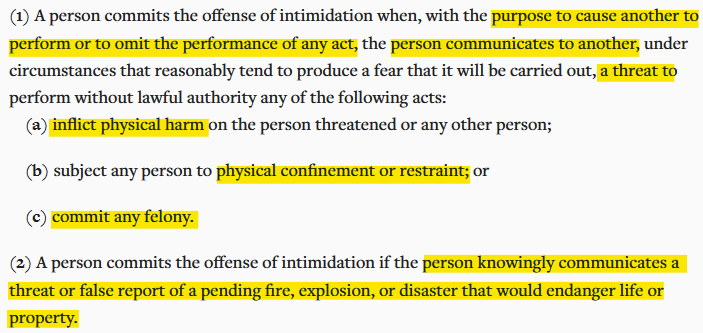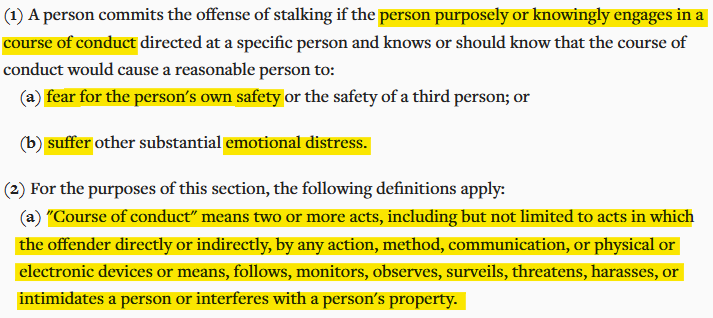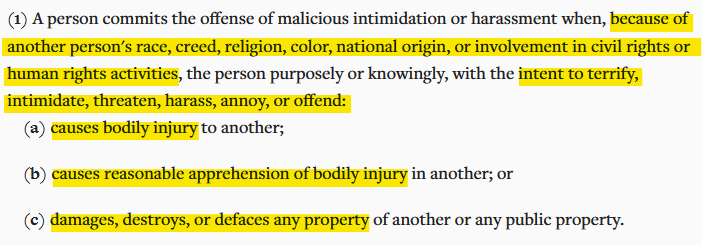Is Doxxing Illegal In Montana?
Laura Martisiute
Reading time: 5 minutes

Table of Contents
If you live in Montana and are concerned about your online privacy, you may wonder: Is doxxing illegal in Montana?
In this guide, we’ll review whether or not it’s legal for someone to share your personal information online without your permission and the penalties associated with several doxxing-related crimes.
Is Doxxing Illegal in Montana?
Doxxing, or publishing someone else’s personal data online without authorization, is not illegal in Montana.
However, other activities can stem from doxxing that are illegal in the state.
Doxxing Related Activities That Are Illegal in Montana
Even though Montana doesn’t have an anti-doxxing law, being doxxed could lead to intimidation, stalking, identity theft, and a host of other illegal activities.
Intimidation
When someone communicates a threat to you (online or otherwise), they could be found guilty of intimidation in Montana (Mont. Code § 45-5-203).

Intimidation is treated seriously in Montana, with offenders facing up to 10 years in prison and a fine of up to $50,000.
Criminal trespass to property
When someone enters your home or property without your permission and refuses to leave, they’re committing criminal trespass in Montana (Mont. Code § 45-6-203).

In a situation like this, the perpetrator can face up to $500 in fines and six months in jail.
Stalking
If a bad actor has your contact information, including your address, they could proceed to repeatedly follow, monitor, observe, harass, or surveil you.
That’s considered stalking in Montana (Mont. Code § 45-5-220), and it amounts to up to one year in jail and a fine of up to $1,000.

Swatting
If you’ve been doxxed online, you may be vulnerable to being swatted.
Swatting is when a bad actor calls law enforcement or another emergency service to report that a crime is underway, with the goal of prompting an emergency response on the unsuspecting victim.
In Montana, this can be charged as making a false alarm to public safety agencies (Mont. Code § 45-7-204), a crime punishable by up to six months in jail and a fine of up to $500.

Malicious intimidation or harassment
Threatening or harassing someone due to their race, creed, religion, color, national origin, or involvement in civil or human rights activities can be charged as malicious intimidation in Montana (Mont. Code § 45-5-221).

The penalty for malicious intimidation is up to five years in jail and up to $5,000 in fines.
Theft of identity
If someone uses your personal information to acquire goods and services, they’re committing theft of identity, according to Montana’s legal code.

If the perpetrator attempted to gain less than $1,500, the offender can be fined up to $500 unless the victim was a minor (in which case the offender could face up to one year in prison and up to $3,000 in fines).
If the attempted gain was between $1,500 and $5,000, the offender can face up to 10 years’ imprisonment and up to $5,000 in fines. If the victim was a minor in those cases, the penalty increases to up to 20 years’ imprisonment and up to $20,000 in fines.
Lastly, if the offender attempted to steal more than $5,000, they’ll be looking at a penalty of up to 10 years’ imprisonment and up to $10,000 in fines.
Criminal invasion of personal privacy
When someone attempts to get more of your personal information while posing as you, they can be charged with criminal invasion of personal privacy in Montana (Mont. Code § 45-8-220).

In Montana, criminal invasion of personal privacy can result in up to one year of imprisonment and a fine of up to $10,000.
Is Doxxing Illegal at the Federal Level?
There is no law against doxxing at the federal level, in part due to the vast amount of personal information available on the internet.
Despite this, when doxxing happens, it can lead to federally illegal activities.
Furthermore, a growing number of states, including Arizona, California, and Illinois, are creating their own anti-doxxing laws.
Whether you live in a state where doxxing is legal or not, you should take measures to protect yourself from being doxxed in the first place. Once information is published on the internet, it can be difficult – if not impossible – to remove it.
How to Protect Yourself Against Doxxing In Montana (And Elsewhere)
Making yourself undoxxable is a matter of reducing your online footprint.
To do so, you can get started by doxxing yourself (by following our guide on self-doxxing using this list of doxxing tools).
Once you’ve doxxed yourself, you’ll have a clearer idea of where your data appears online and what you can do to protect it.
For most people, that will involve a combination of steps, including:
- Changing privacy settings on social media from public to private.
- Opting out of data brokers, which are companies that sell your data to anyone willing to pay a minimal fee. You’ll need to opt out of every data broker with a profile on you, likely more than once, as data brokers are notorious for reactivating profiles when new data is found. As an alternative, consider subscribing to a data removal service such as DeleteMe to handle the opt-out process for you.
- Changing your usernames for different platforms, and using unique usernames moving forward.
- Removing your data from Google services, including Search and Maps.
- Sharing less information online.
Interested in learning more? Read our guide on how to prevent doxxing.
Our privacy advisors:
- Continuously find and remove your sensitive data online
- Stop companies from selling your data – all year long
- Have removed 35M+ records
of personal data from the web
Save 10% on any individual and
family privacy plan
with code: BLOG10
news?
Don’t have the time?
DeleteMe is our premium privacy service that removes you from more than 750 data brokers like Whitepages, Spokeo, BeenVerified, plus many more.
Save 10% on DeleteMe when you use the code BLOG10.















